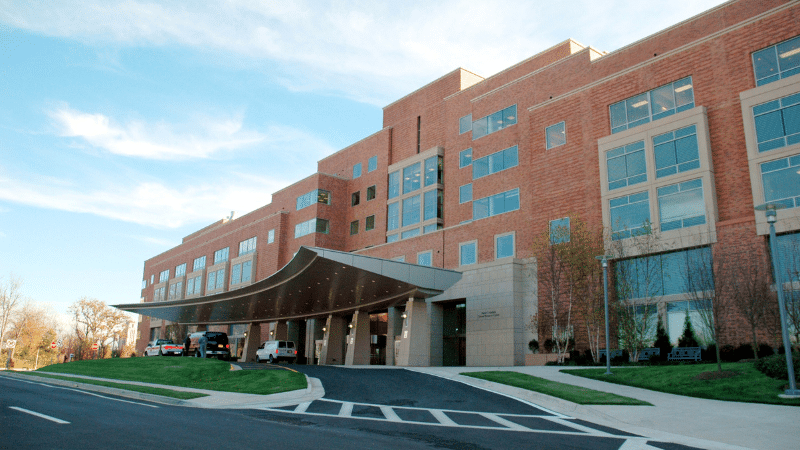Having been through the residency matching process and relocation myself, I understand the excitement and challenges of this major transition. Moving for residency is a significant step in your medical career, and being prepared can make all the difference. Here are some key things to know about residency relocation and tips to make your move smoother.
Choosing Your New Home
When it comes to moving for residency, one of the most important decisions you’ll make is where to live. Consider these factors:
- Proximity to your hospital or clinic
- Cost of living
- Safety of the neighborhood
- Access to public transportation
- Amenities and lifestyle factors
Many residents opt to rent rather than buy, especially in more expensive cities. This provides flexibility and allows you to get to know the area before making a long-term commitment. Although, if you’re considering making a purchase, here are some important factors to keep in mind.
Residency Relocation Tips
- Start planning early: Begin your preparations as soon as you know your match results.
- Create a checklist: List all the tasks you need to complete before, during, and after your move.
- Declutter: This is a great opportunity to downsize. Consider donating or selling items you no longer need.
- Budget for moving expenses: Moving can be costly. Factor in expenses like deposits, moving services, and potential cost-of-living increases3.
- Pack strategically: Label boxes clearly and pack a “first day” box with essentials you’ll need immediately upon arrival.
- Update your address: Don’t forget to change your address with the post office, banks, and other important institutions.
- Research your new city: Familiarize yourself with your new location, including local amenities, transportation options, and healthcare facilities.
Best Cities for Residents
While the best city for your residency will depend on your program and personal preferences, some cities consistently rank highly for medical residents. According to recent data, the top cities for medical residents include:
- Detroit, MI
- Toledo, OH
- Philadelphia, PA
- Cincinnati, OH
- Pittsburgh, PA
These cities offer a combination of job availability, competitive salaries, and favorable location quotients for medical residents. Here are some other cities to consider further down the line
Leveraging Relocation Assistance
Some residency programs offer relocation assistance, which can be a significant help. This may include:
- Cost-sharing or fully-paid moving expenses
- Administrative support for licensing and paperwork
- Connections to local resources and housing options
Be sure to inquire about what assistance your program provides3.
Financial Considerations
Moving for residency often comes with financial challenges. Here are some tips to manage the financial aspect:
- Create a detailed budget for your move and new living situation
- Look into relocation loans if necessary
- Consider the cost of living in your new city and how it compares to your resident salary
- Don’t forget to factor in expenses like licensing fees and board exam costs
Final Thoughts
Moving for residency is a significant life event that requires careful planning and consideration. By starting early, staying organized, and taking advantage of available resources, you can make your transition smoother and focus on what really matters – beginning your medical career. Remember, this is an exciting time, and while the move may be stressful, it’s the start of an incredible journey in your medical career.
How do the residency programs in these cities differ?
Detroit
The Authority Health Family Medicine residency program in Detroit emphasizes:
- Training in urban and rural medically underserved communities
- Rotations at Federally Qualified Health Centers and community clinics
- Focus on preparing residents to provide patient-centered, evidence-based primary care
- Involvement with Michigan State University College of Osteopathic Medicine for academic sessions
- Commitment to health equity and serving vulnerable populations
Philadelphia
The Thomas Jefferson University Family Medicine residency in Philadelphia features:
- Premier university-based training program
- Deep community connections combined with rigorous academics
- Prepares residents for academic medicine, research, care of underserved populations, and broad-spectrum practice
- Emphasis on comprehensive patient care throughout the lifecycle
- Commitment to providing care for underserved populations
The Philadelphia College of Osteopathic Medicine Internal Medicine residency offers:
- Training at multiple hospitals to expose residents to diverse pathology
- Flexibility for residents to customize their training
- Strong board exam pass rates
- Emphasis on academics and teaching
- Opportunities for elective rotations at major medical centers in Philadelphia
Ohio Cities
Ohio family medicine residency programs highlight:
- Individualized curricula to meet resident interests (Aultman program)
- Unique pediatric training opportunities (Bethesda program)
- International rotation options to Cuba and Belize (Bethesda program)
- Combined family medicine/preventive medicine tracks (University Hospitals program)
- Emphasis on practice management and the business of medicine (Cleveland Clinic Akron General program)
- Well-developed global health curricula (Cleveland Clinic Akron General program)
In summary, while all programs aim to provide comprehensive training, they differ in their specific focus areas, rotation sites, academic affiliations, and unique opportunities offered to residents based on their location and institutional strengths. The Detroit program emphasizes underserved care, Philadelphia programs highlight academic medicine, and Ohio programs offer varied experiences from global health to combined specialty tracks.
Reference
Citations – Moving for Residency: What to Know About Relocation
[1] https://www.zippia.com/medical-resident-jobs/best-cities/
[2] https://recruiter.physemp.com/blog/career-beat/9-best-places-residency/
[3] https://www.practicematch.com/physicians/articles/the-resident-relocation-guide.cfm
[4] https://www.ama-assn.org/medical-residents/medical-residency-personal-finance/relocating-residency-keep-these-things-mind
[5] https://panaceafinancial.com/resources/residents-guide-to-relocation/
[6] https://www.urbanbound.com/blog/relocating-for-residency-or-fellowship-9-tips-for-a-smooth-transition
[7] https://www.reddit.com/r/medicalschool/comments/fmgws6/moving_for_residency_resources_suggestions_and/
Citations – How do the residency programs in these cities differ?
[1] https://authorityhealth.org/graduate-medical-education/family-medicine-residency-program/
[2] https://otolaryngology.med.wayne.edu/residency-program
[3] https://www.jefferson.edu/academics/colleges-schools-institutes/skmc/departments/family-medicine/residency.html
[4] https://www.pcom.edu/academics/graduate-medical-education/residency-and-fellowship-programs/internal-medicine.html
[5] https://www.ohioafp.org/members/students/residency-program-descriptions/
[6] https://www.zippia.com/medical-resident-jobs/best-cities/
[7] https://mercymedicalresidency.org/wp/index.php/internal-medicine/
[8] https://www.utoledo.edu/med/depts/medicine/residency/
[9] https://panaceafinancial.com/resources/residents-guide-to-relocation/
[10] https://recruiter.physemp.com/blog/career-beat/9-best-places-residency/
[11] https://forums.studentdoctor.net/threads/2018-2019-emergency-medicine-rank-order-list-thread.1359682/
[12] https://systems.aamc.org/eras/erasstats/par/display.cfm?NAV_ROW=PAR&SPEC_CD=110
[13] https://www.abim.org/Media/lhgmdidp/residency-program-pass-rates.pdf
[14] https://www.asahq.org/education-and-career/asa-resident-component/residency-information-by-state



